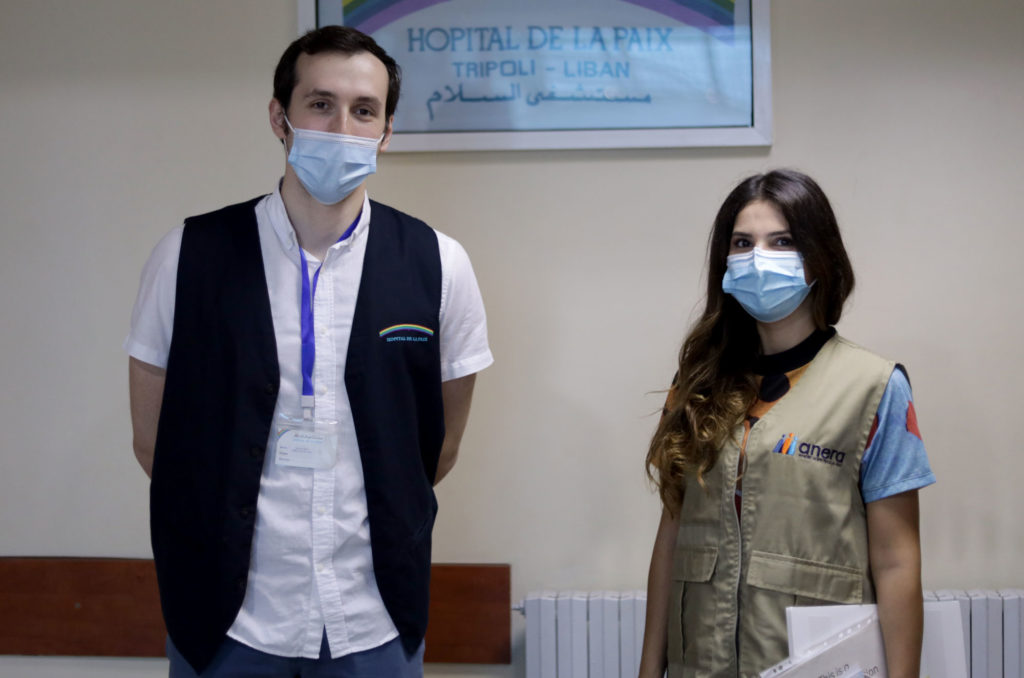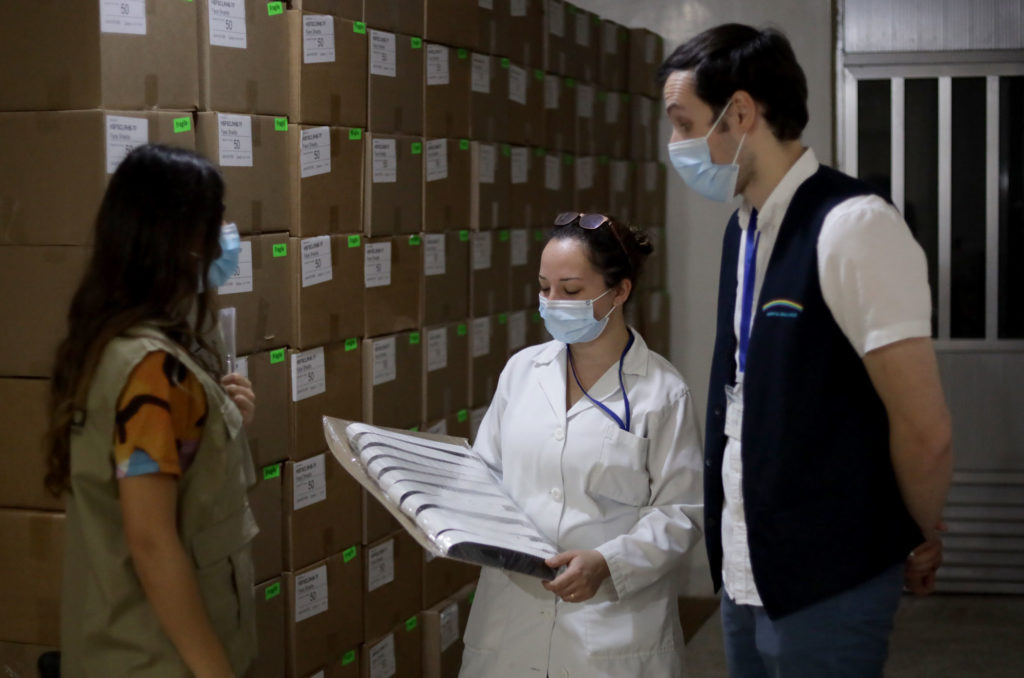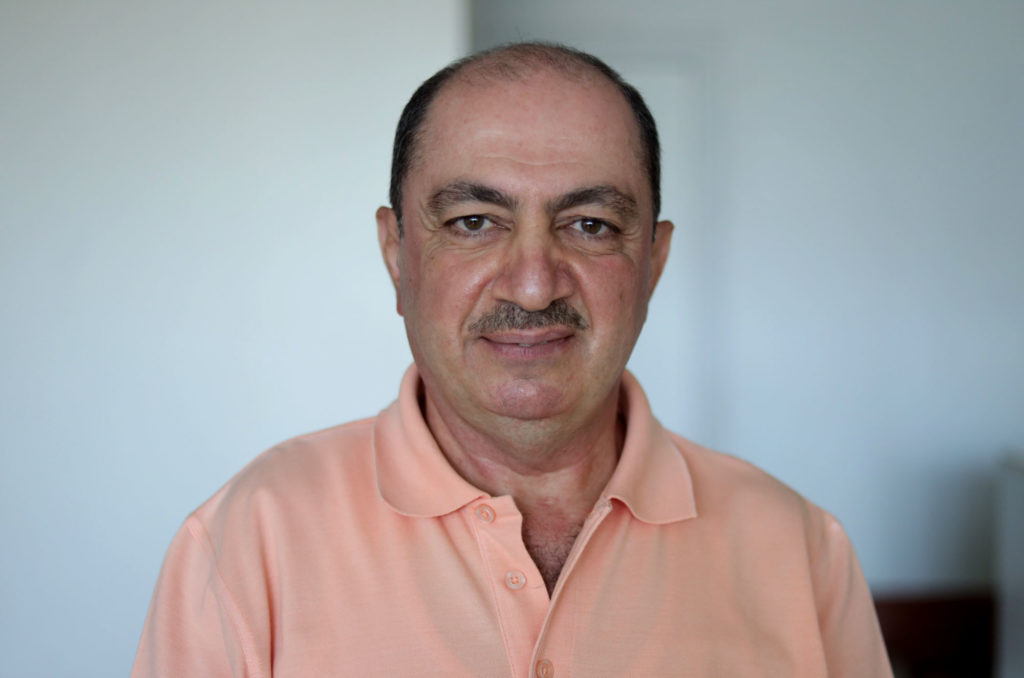Dec, 2021
Without aid from Anera and other organizations, Lebanon’s health community would crumble.
Lebanon’s health community is seriously hampered by supply shortages and soaring prices. Caring for the sick has become a major challenge for the country’s hospitals and clinics.
“The medical suppliers are getting very picky about orders,” explains Joseph Jean Sabeh, the vice director at Al-Salam Hospital in Tripoli. “We ask for 20 items and they give us two. Many suppliers only accept payment in dollars. And that is virtually impossible.”




“Many suppliers only accept payment in dollars. And that is virtually impossible.”
Dr. Sabeh says most patients have insurance or pay by check. But the banks don’t let them cash the checks. “And the suppliers don’t accept checks, so it’s a vicious cycle. Some of the medications we struggle to find are propofol, ketamine, and Colomycin."
Matters took a turn for the worse after a fuel tanker exploded in August 2021 in the town of Tleil, in the northern region of Akkar. The disaster left scores of dead and injured people. An investigation is underway to determine the cause. Dozens of burn victims are still being treated, but medical supplies to treat them are in short supply.
Anera quickly responded to the disaster with help from our longtime donor Americares. Our immediate priority was to supply the emergency teams and medical staff working directly with the patients. Americares’ donation included urgently needed face shields, coveralls, goggles, respirators and other protective equipment that would help reduce the risk of infection. “Burn victims are extremely fragile so we must be sure staff and family are safe from spreading infections,” Sabeh says.
Anera also supplied Geitaoui Hospital in Beirut, the only other burn center receiving victims of the explosion. Some burn patients were even sent abroad for treatment.
Burn patients need strong pain medications like morphine. Salah Ishaq is a general surgeon at Al-Salam Hospital in Tripoli. He says treating the burn victims was depleting the hospital’s supply of medicines. “Treating burns is expensive and we simply can't afford it. We are constantly under threat of closure because of this economic crisis.”
Anera responded to the hospital’s call for help and immediately distributed the medications and other supplies needed to treat the explosion victims. Al-Salam Hospital, also known as Hopital de la Paix, was established in 1996. Their burn center has five patient rooms with laminar airflow isolation systems that are needed to treat major burns. The hospital has 18 patient rooms dedicated for burn patients and 12 in the ICU unit, which was added five years ago.
“But we have to economize wherever we can,” explains Wisal al-Biyaa, the head nurse in the burn section. “With all the shortages, we are constantly worried about running out of supplies and having to close our doors.”


Lebanon continues to endure power cuts and fuel shortages. The economic crisis makes it worse. The country’s hospitals, once famed for state-of-the-art medical services across the region, have become strapped for cash. Many small-scale factories that usually produce some of the needed PPE have had to shut down due to electricity and fuel shortages.
Anera was able to provide immediate support after the explosion, but the crisis is far from over. The continuing power cuts have often paralyzed hospital operations. In the heat of the summer, hospitals were forced to turn off all cooling systems. As winter approaches hospital administrators may well have to shut off heating systems too. “We only have power for about four hours a day,” Dr. Ishaq says. “We have to rely on generators for the rest but that’s hard to afford since we have no dollars to pay for the fuel.”
The latest crisis comes on the heels of the pandemic. Al-Biyaa says the Americares donation has been key to survival for her patients. “We go through a large amount of PPE to protect these fragile patients. Anera’s donation is making it possible for our department to continue treating our patients.”
During crises like the Akkar explosion, healthcare workers operate non-stop to care for burn patients. “We must be there for our workers like they are always there for the patients and their families,” says Sabeh. Lebanon’s health workers are on the front line most every day and the doctor says he cannot stress enough the importance of Anera’s donations to make their work possible.


"Anera’s donation is making it possible for our department to continue treating our patients.”




